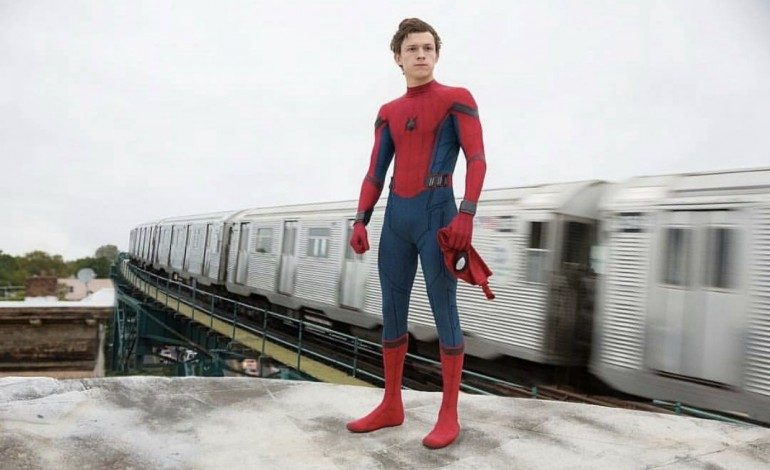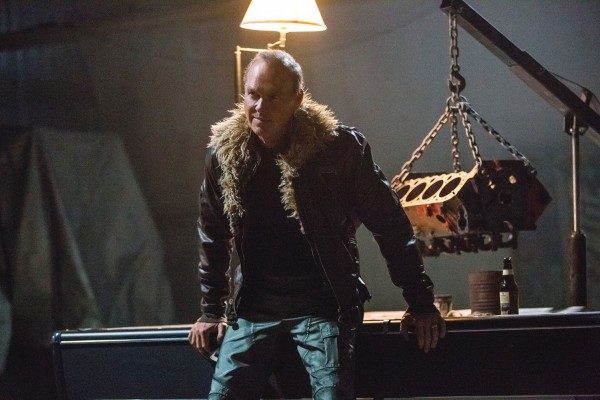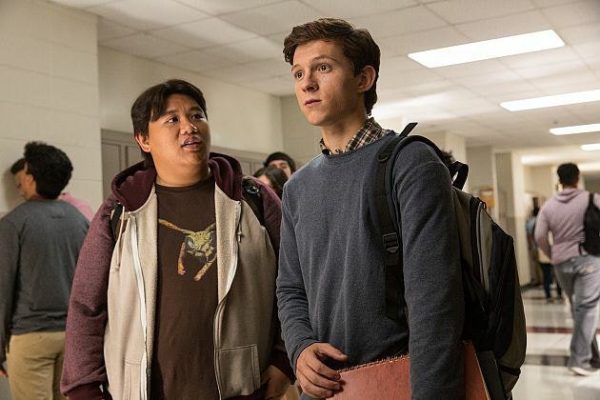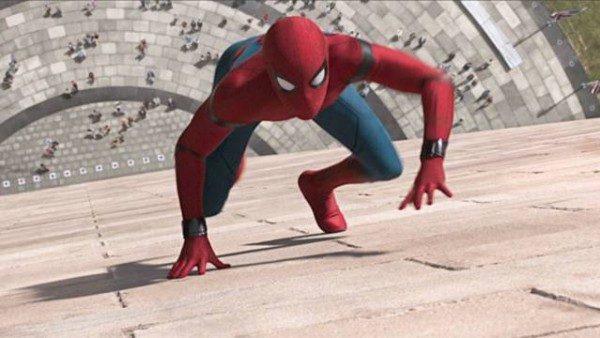

Let the debates commence! For those of us who have special ties to Sam Raimi’s 2002 Spider-Man starring Tobey Maguire, we’ll inevitably be crashing in on Spider-Man: Homecoming with some baggage. In comparison to the more recent Amazing Spider-Man series, though, Homecoming at least has a legitimate fighting chance. Marvel’s reclaimed youthful Spider-Man reintroduces the character in an authentic, zeitgeisty fashion while staying in line with the studio’s quality controlled standards. Sometimes it may feel too much like a typical Marvel film, though, walking back on some of the comic’s mythology in favor of making the story contemporary or relevant. Nitpicking aside, Jon Watts’ Homecoming is undeniably pure fun, with an exceptional lead performance by Tom Holland and a slew of supporting characters that fit uniquely into the mold.
The entirety of Homecoming can in a sense be boiled down to the film’s first two sequences. The very first moments are not dedicated to our hero, but our villain. Taking note from the critical successes of their Netflix shows (Daredevil, Jessica Jones, etc.), in which dynamic villains (or anti-heroes) like Kingpin or Kilgrave are afforded just as many emotionally charged, character developing scenes as the show’s superheroes, Marvel is officially in bed with the enemy.
Taking on Spider-Man this go around is Adrian Toomes, a.k.a. Vulture (Michael Keaton). He’s not an entirely groundbreaking villain, staying in line with the idea of the scorned business man (business men seem to get super angry in comic books!). Toomes was a contractor getting into the business of cleaning up infrastructure and architectural catastrophes post-Avengers battles until Tony Stark’s Department of Damage Control took over and put him out of a job. In a move half-fueled by revenge, and half by lucrative greed, Toomes begins building and selling super-weapons out of alien technology stolen from battle sites and later from the DDC itself; how a Stark/government run agency is being so easily pilfered from is another question for another time.
From there, the film has an incredibly strong pick-up with a critical tie-in to Captain America: Civil War. We see the words “a film by Peter Parker” across the screen and are subsequently treated to Peter’s hand-held camera perspective of his exciting debut with The Avengers. This sequence sets up two very important bases for the rest of the film: one, the spastic youthful exuberance of the character, and two, the fact that this Spider-Man is being presented in the middle or tail-end of his origin story. In regard to the latter point, this was some pretty genius strategy. While reeling in the next generation with teenage humor and sensibility, Marvel sucks in veteran Spider-Man fans by giving them something they haven’t yet seen in the live-action films — that being Spider-Man “on-the-job”, dealing with being a hormonal teenager and the responsibilities of an internship-like gig more than he is with the catastrophic changes of a radioactive spider bite. On the other end, the film lays the character’s endearing youthful energy on heavily from the outset, and maybe unintentionally plants the idea that this entire film would have been great as solely a Peter Parker found footage movie. Seeing Spider-Man as essentially the banana in the tailpipe of The Avengers is also an entertaining gimmick for the film and allows stylistic Marvel through-lines of Iron Man and Captain America to bleed through.
Holland, as Parker and Spider-[Boy], is uncannily married to the character, and is a testament to the talent of casting directors. While Maguire had an impeccable balance of naive youthful energy and impending adult melancholy, Holland perfectly captures the character of the comics and within a specific moment in time; his emotional elasticity, his irreverent humor in life-or-death moments, and his awkward cluelessness while remaining ultimately cool. Holland is wholly this teenage version of the character, so much so that he may create a mental divide for some of the 2002 film fans.
Supporting this of-the-moment Peter is a richly and ethnically diverse group of youngsters at the high school (to make up for the strictly white leads of course). First we have Ned Leeds (Jacob Batalon), Peter’s best friend and show-stoppingly humorous sidekick. Knowing that Marvel loves to wink at itself, Leeds becomes Spider-Man’s “chair guy”, a variation on the stock behind-the-scenes computer hacker friend, but with extra schmaltz. Homecoming then pulls a fast one on audiences with its female characters. One is what seems like the typically beautiful and flawless love interest (Laura Harrier), but is also the brainy academic decathlon captain with seeds of storyline deserving of her own starring movie. The other is Michelle (Zendaya), an elusive teenage misanthrope who will end up throwing the unsuspecting audience for a loop. Also leaning towards unconventionality is Tony Revelori (Grand Budapest Hotel) as Flash Thompson. Revelori plays the character’s privileged pompousness with a flare of intelligence, and without all of the meat-head stupidity of his former portrayals.
Conventionally, however, this feels like a Marvel film through and through — the specific, intentioned humor, the carefully packed-in barrage of characters, and a special attention to narrative arc and character development. Homecoming doesn’t stray far from formula, and for the most part, it’s a great thing and will draw audiences to its tightly finished and enjoyable product. In that pursuit, though, the film loses some of its character. This version feels much less like a “New York story”, watering down the city’s alleyway grit and grime for a lighter-toned hipster Queens. Likewise, the film ups-the-ante in gadgetry, bringing the story into the modern times of visual effects with tricked-out suits and weaponry. Again, the film favors a sense of newness, but detracts from the mythology of Spider-Man — i.e. since when does he need technology to shoot webs? Stark’s new super suit for Spidey, while serving the character’s youth and training, also makes the character a bit wimpy and less naturally inclined.
Verdict: 4 out of 5
Setting aside ghosts of Spider-Man(s) past, Homecoming is unfettered enjoyment, from the carefree filmmaking style, to Holland’s paralleled performance, and the comedic precision of the supporting cast and characters. The film is carefully cultivated to stand out on its own footing while building on the current mythology of Marvel’s Phase 3 and still feel wholly fresh. The filmmakers make some creative decisions to bring audiences a new Spider-Man that may spark debate; but, the foundation is there, the writing is tight, and the production elevates the film to epic Summer Movie Event standards.




